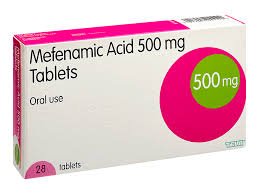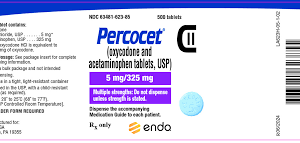Description
Mefenamic Acid: Overview, Uses, and Benefits
Mefenamic acid is a nonsteroidal anti-inflammatory drug (NSAID) commonly used for pain relief and the reduction of inflammation. It belongs to the class of drugs known as fenamates, which are effective in managing conditions related to pain, inflammation, and fever. Mefenamic acid is widely prescribed for short-term use, often for conditions that cause acute pain or discomfort.
In this article, we will explore the composition, uses, mechanism of action, benefits, and precautions associated with it.
Composition of Mefenamic Acid
The active ingredient in it is the acidic compound itself, which is a member of the fenamate family of NSAIDs. It is available in various forms, including tablets, capsules, and sometimes as liquid formulations. The drug is typically provided in strengths ranging from 250 mg to 500 mg per dose.
The full formulation often contains inactive ingredients (excipients) such as:
- Binders and fillers that ensure the stability and consistency of the medication.
- Preservatives to maintain the shelf life of the product.
- Coloring agents to distinguish between different doses or formulations.
Common Uses of Mefenamic Acid
Mefenamic acid is primarily used to manage pain and reduce inflammation. Here are the most common uses of this medication:
- Pain Relief:
- Mefenamic acid is most commonly prescribed to relieve mild to moderate pain. This can include pain associated with:
- Menstrual cramps (dysmenorrhea)
- Headaches or migraines
- Toothaches or dental pain
- Musculoskeletal pain (muscle strains, sprains, etc.)
- Post-surgical pain or pain from minor procedures
- Mefenamic acid is most commonly prescribed to relieve mild to moderate pain. This can include pain associated with:
- Anti-inflammatory:
- It is effective in reducing inflammation caused by conditions like arthritis, rheumatoid arthritis, and osteoarthritis. Mefenamic acid helps reduce swelling, stiffness, and pain in the joints and surrounding tissues.
- Fever Reduction:
- As an NSAID, Mefenamic acid also has mild antipyretic (fever-reducing) properties, helping to bring down a fever associated with infections or inflammatory conditions.
- Dysmenorrhea (Menstrual Pain):
- Mefenamic acid is commonly prescribed for the relief of menstrual cramps (dysmenorrhea). It is particularly effective for those who experience significant discomfort or pain during menstruation.
Mechanism of Action
Mefenamic acid works by inhibiting the production of prostaglandins, which are chemicals in the body responsible for promoting inflammation, pain, and fever. Here’s how it works:
- Inhibition of Cyclooxygenase (COX):
- Mefenamic acid blocks the activity of cyclooxygenase enzymes (COX-1 and COX-2). These enzymes are responsible for converting arachidonic acid into prostaglandins.
- By blocking these enzymes, Mefenamic acid reduces the production of prostaglandins, which are key mediators of inflammation and pain.
- Pain and Inflammation Reduction:
- The reduction in prostaglandin levels leads to decreased pain and inflammation. This makes Mefenamic acid effective in treating various inflammatory and pain-related conditions.
- Fever Reduction:
- Prostaglandins also play a role in regulating body temperature. By inhibiting their production, Mefenamic acid can help lower fever by acting on the hypothalamus (the part of the brain that regulates body temperature).
Benefits of Mefenamic Acid
- Effective Pain Relief:
- Mefenamic acid is particularly effective for treating moderate pain such as menstrual cramps, headaches, and musculoskeletal pain. It helps to provide quick and effective relief, making it a valuable option for individuals experiencing these types of pain.
- Anti-inflammatory Action:
- Its ability to reduce inflammation makes it useful for managing conditions like arthritis and rheumatic disorders. By reducing swelling and joint stiffness, the drug can improve mobility and overall quality of life for people with inflammatory conditions.
- Well-Tolerated for Short-Term Use:
- When used for short periods and at recommended dosage it is generally well-tolerated by most individuals and provides relief without causing significant side effects.
- Convenient Dosing:
- Mefenamic acid is available in tablet or capsule form, making it easy to incorporate into daily routines. The typical dosing regimen involves taking one to two doses daily depending on the severity of the pain or inflammation.
Side Effects of Mefenamic Acid
Like all medications, it can cause side effects. Common and serious side effects include:
- Gastrointestinal Issues:
- As with many NSAIDs, it can cause stomach irritation, nausea, vomiting, gastritis, and even ulcers or bleeding in the gastrointestinal tract if used for long periods or at high doses. To minimize these risks, it is typically recommended to take the medication with food or after meals.
- Headaches:
- Some individuals may experience headaches or dizziness as a side effect of Mefenamic acid.
- Rashes and Allergic Reactions:
- In rare cases, individuals may develop rashes, hives, or more severe allergic reactions such as swelling or difficulty breathing. If any signs of an allergic reaction appear, immediate medical attention should be sought.
- Kidney and Liver Concerns:
- Prolonged use of NSAIDs like it can potentially impact kidney function and liver health. This is especially a concern for people with preexisting conditions affecting the kidneys or liver.
- Cardiovascular Risk:
- Like other NSAIDs, it may increase the risk of heart attacks, stroke, or high blood pressure with long-term use, especially in individuals with existing cardiovascular conditions.
- Edema:
- It may cause fluid retention or swelling (edema), particularly in individuals with heart or kidney conditions.
Precautions and Considerations
- Preexisting Conditions:
- Individuals with gastric ulcers, bleeding disorders, kidney or liver problems, or heart disease should use it with caution and only under the supervision of a healthcare provider.
- Pregnancy and Breastfeeding:
- It should generally be avoid during pregnancy, especially in the third trimester, as it may affect fetal development or lead to complications during labor. It is also not recommend during breastfeeding without medical advice.
- Drug Interactions:
- It can interact with other medications, including blood thinners (e.g., warfarin), diuretics, and other NSAIDs. Always inform your healthcare provider of all medications you are taking to avoid harmful interactions.
- Short-Term Use:
- It is typically recommend for short-term use due to the risk of side effects with long-term use. It is important to follow your doctor’s instructions on the duration and dosage of the medication.
Conclusion
Mefenamic acid is a widely use NSAID that provides effective relief from pain, inflammation, and fever. It is commonly prescribe for conditions such as menstrual cramps, arthritis, and acute pain from injuries or procedures. While it is effective for short-term use, it is essential to be aware of potential side effects and to use the medication as direct by a healthcare provider.






Reviews
There are no reviews yet.